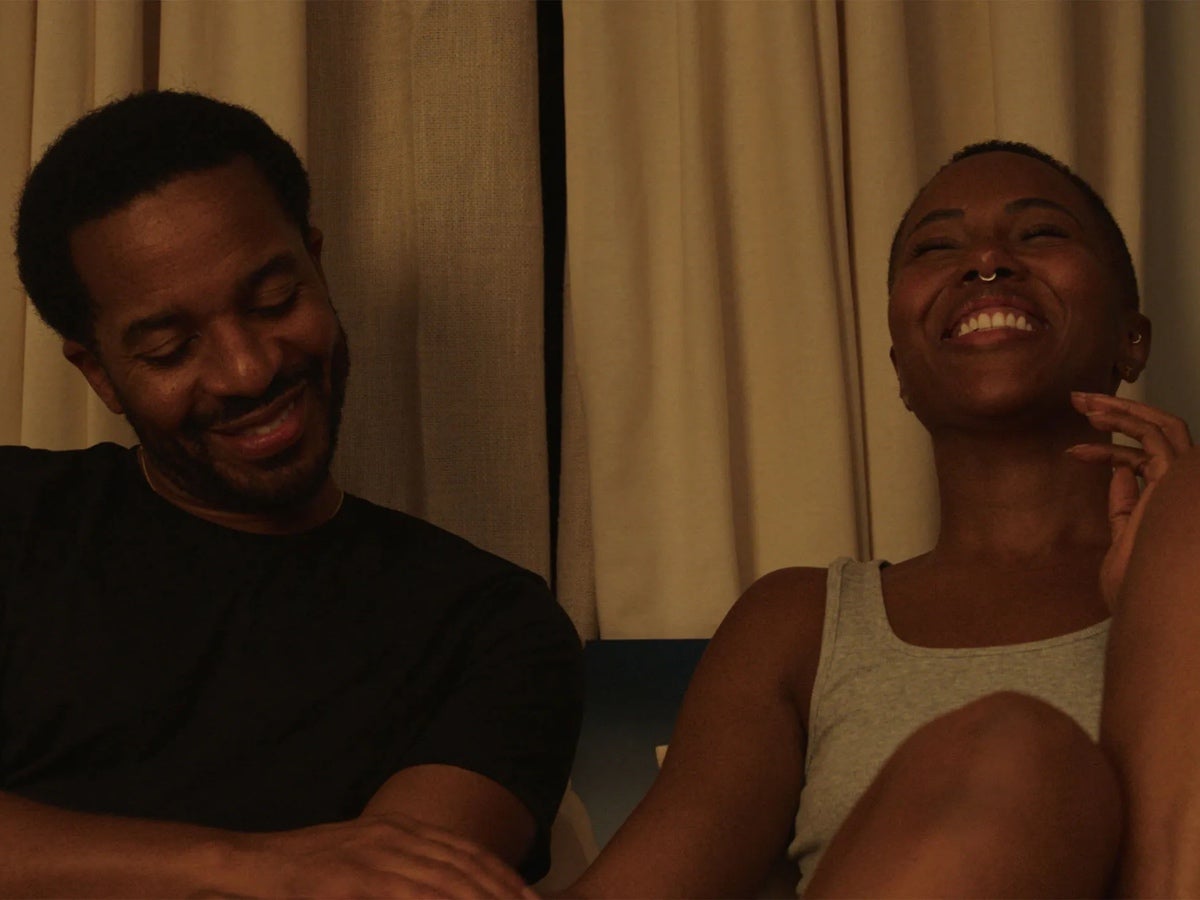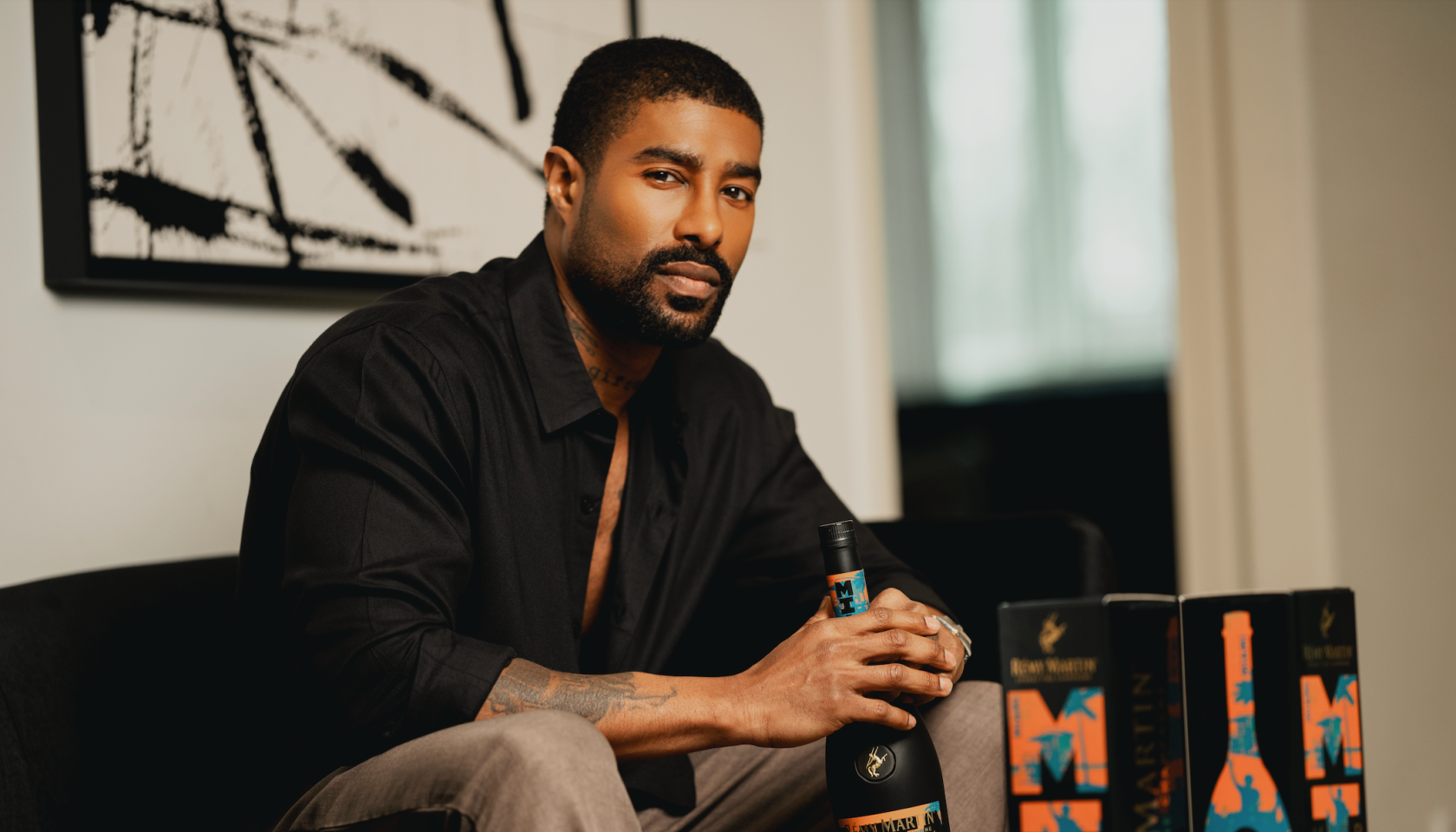“I’m always riding around,” André Holland said. “It’s such a wonderful way to see the city, experience it, and really get to know people.”
In Love, Brooklyn, Holland channels that love of discovery into Roger, a character who cuts through the borough on his trusted bicycle. Directed by Rachael Abigail Holder in her feature debut, the film captures Brooklyn in all its contradictions: the stately brownstones, the corner coffee shops, and the constant churn of gentrification. More than just a backdrop, the city becomes an uncredited character, shaping the decisions, dreams, and heartbreaks of those who call it home.
The film first drew praise at Sundance and recently reached Philadelphia audiences at the BlackStar Film Festival, setting the stage for its national theatrical release. The indie drama stars Holland alongside Nicole Beharie, DeWanda Wise, Cassandra Freeman, and comedian Roy Wood Jr., with Steven Soderbergh serving as executive producer. Love, Brooklyn follows three longtime friends as they navigate love, loss, and the pressures of adulthood, told with the kind of quiet honesty that has made it one of the year’s most talked-about debuts.
For Holland, who not only stars in the film but also produced it, the overlap between his life and Roger’s was inescapable. “It was quite a mission doing both on this one,” he said of his dual duties. “Keeping all of the plates in the air behind the scenes with the production definitely related, I think, to Roger’s journey in terms of his own mission of trying to keep his career alive and keep his romantic life alive while he’s navigating several different relationships.”
If Roger is searching for balance, his best friend Alan (Roy Wood Jr.) serves as a steady presence in his life. Alan is a married man tempted by things that could be, but his friendship with Roger grounds the story in a rare portrayal of Black male vulnerability. “It meant a lot to be able to tell that story,” Wood says. “I think that men, Black men more often than not are very slow to admit their own insecurities about their relationships to their friends. We only talk about our victories, and then once the relationship crashes and burns, but the struggle to keep the airplane of love in the air, I think is often skipped over sometimes.”
“I think for what my character is dealing with, if Andre’s character is deciding on love, my character is asking: What do you do after you’ve made the decision?” the comedian continued. “I think we’re always in a constant state of trying and changing, evolving, and deciding on who gets to go on those journeys with us.”
The tension between choosing love and living with the consequences threads through every relationship in the film. Wise, whose character Nicole wrestles with the realities of single motherhood, preparation meant observing the women closest to her. “All my closest friends are mothers now,” she said. “So, I was drawing a lot from their experiences and also what it means to be raising a young woman who you want to be assertive in the world—there’s this real fine line. There are elements of Nicole from the outset that feel like, ‘oh, she’s a very permissive parent.’ But it is a real task to raise a daughter who takes up space in the world, and that’s what Nicole is doing. She’s raising a daughter who is going to take up space.”
Love, Brooklyn’s intimacy was further strengthened by the involvement of Soderbergh, who not only produced the film but has a history with several members of its cast. “Both Roy and I have worked with [him] before,” Holland explained. “As a matter of fact, he has been one of the best allies that I’ve had in this business.” Wood, who spoke to the auteur’s influence, remains grateful that it’s being used for the betterment of BIPOC creatives. “I’m just thankful to Steven Soderbergh for being supportive of Black stories as well,” he said. “That’s something that goes very understated about him and his company. And also trusting our Black woman director, Rachael Abigail Holder. This is her first feature, and there were a lot of different tweaks and changes that were put there. To have that level of trust in her was major.”
Ultimately, Holder’s debut is a story about choices—whether to cling to the past or embrace the uncertainty of the future, whether to nurture old wounds or step into something new. It’s a film about friendship, about the gravity of family, and about the small but seismic decisions that shape who we become.
For Wise, that’s what makes the film’s love stories resonate so deeply. “Honesty,” she says simply. “I feel like you have to give people something they can latch onto. People can smell bullshit from a mile away, and they just want to see the truth reflected. I think it’s really affirming to see your experience reflected on screen.”







